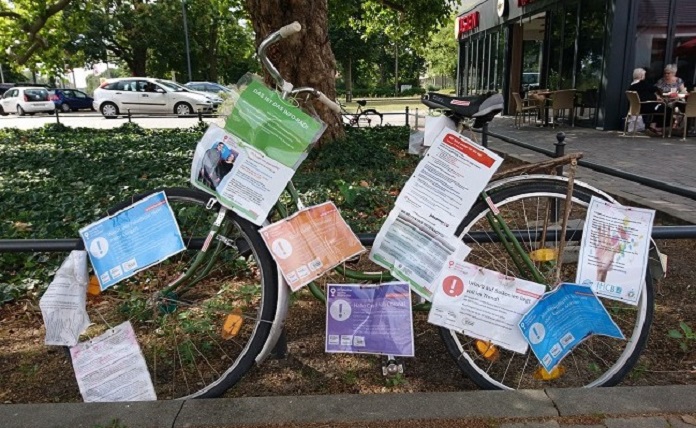From Shrinkage to Immigration. New Perspectives for Peripheral Large Housing Estates (StadtumMig) - Implementation and Consolidation Phase (StadtumMig II)
Research department: Politics and Planning
Project Leader within IRS: Dr. Madlen Pilz
Project Team: PD Dr. Matthias Bernt
Consortium: Leibniz Institute for Research on Society and Space (Coordination) Leibniz Institute of Ecological Urban and Regional Development Berliner Institut für empirische Integrations- und Migrationsforschung B.B.S.M. GmbH AWO-Soziale Dienste gGmbH-Westmecklenburg MIO e.V. Geflüchteten Netzwerk Cottbus e.V.
Funding Organization: Federal Ministry for Education and Research (BMBF)
Duration: 10/2022 - 09/2024
Germany has officially been a country of immigration since 2005. Ten years later, the arrival and reception of Syrian civil war refugees, as well as the current arrival of Ukrainian refugees, have shown how much the state and society have changed. The following developments can be cited as examples:
- Numerous civil society support initiatives of local residents from very different backgrounds have come together - often on the spur of the moment - to help shape the reception, accommodation and integration of the new arrivals.
- With various funding instruments at national, state and European level, municipalities are now receiving more financial support for their integration work.
- In the municipal administrations, there is a structural reorganisation and increase in personnel in this area of responsibility.
- Arrivals are provided with decentralised housing in the cities. This has led to the development of new so-called arrival neighbourhoods in the large housing estates in eastern German cities, which were previously less known as immigrant neighbourhoods. Here, large housing estates are among the neighbourhoods with the greatest diversity in the population. Since May 2019, the joint project StadtumMig I has been investigating these changes in selected large housing estates in three eastern German cities: in Mueßer Holz and Neu-Zippendorf in Schwerin, in Südliche Neustadt in Halle (Saale) and in Cottbus Sandow.
Building on these results, central challenges in the municipalities will be dealt with in greater depth in the second phase of the project. To this end, the cooperation between the Leibniz Institute for Research on Society and Space (IRS), which also coordinates the network, the Leibniz Institute for Ecological Urban and Regional Development (IÖR), the Berlin Institute for Empirical Research on Integration and Migration at the Humboldt University of Berlin (BIM), and the B.B.S.M. Brandenburgische Beratungsgesellschaft
für Stadterneuerung und Modernisierung mbH will be continued. New additions to the network in the municipalities are Arbeiterwohlfahrt e. V. (AWO) in Schwerin and the Geflüchteten Netzwerk Cottbus and Mio e.V. in Südliche Neustadt in Halle. The municipalities continue to be involved in the project as associated partners.
Sub-project: Integration work as a permanent municipal task
Within the framework of the sub-project "Integration work as a long-term municipal task", the IRS will continue to focus on questions of municipal coordination and control of municipal integration policy. Specifically, the IRS deals with the different facets of municipal cross-sectional tasks:
- What does integration as a cross-cutting task mean in the administrations and in society?
- What kind of cooperation with whom must be organised for this purpose?
- What resources - financial and human - and what new knowledge bases are needed?
- What role can and should migrant and non-migrant residents play in this?
The current situation, specific challenges and possible strategies for implementing the cross-sectional task will be worked out in guideline-based expert interviews with actors in the city administrations and in civil society projects. In further discussions with external experts from politics and science, the aim will be to give the topic more publicity and to think about necessary and possible changes to the framework conditions.


